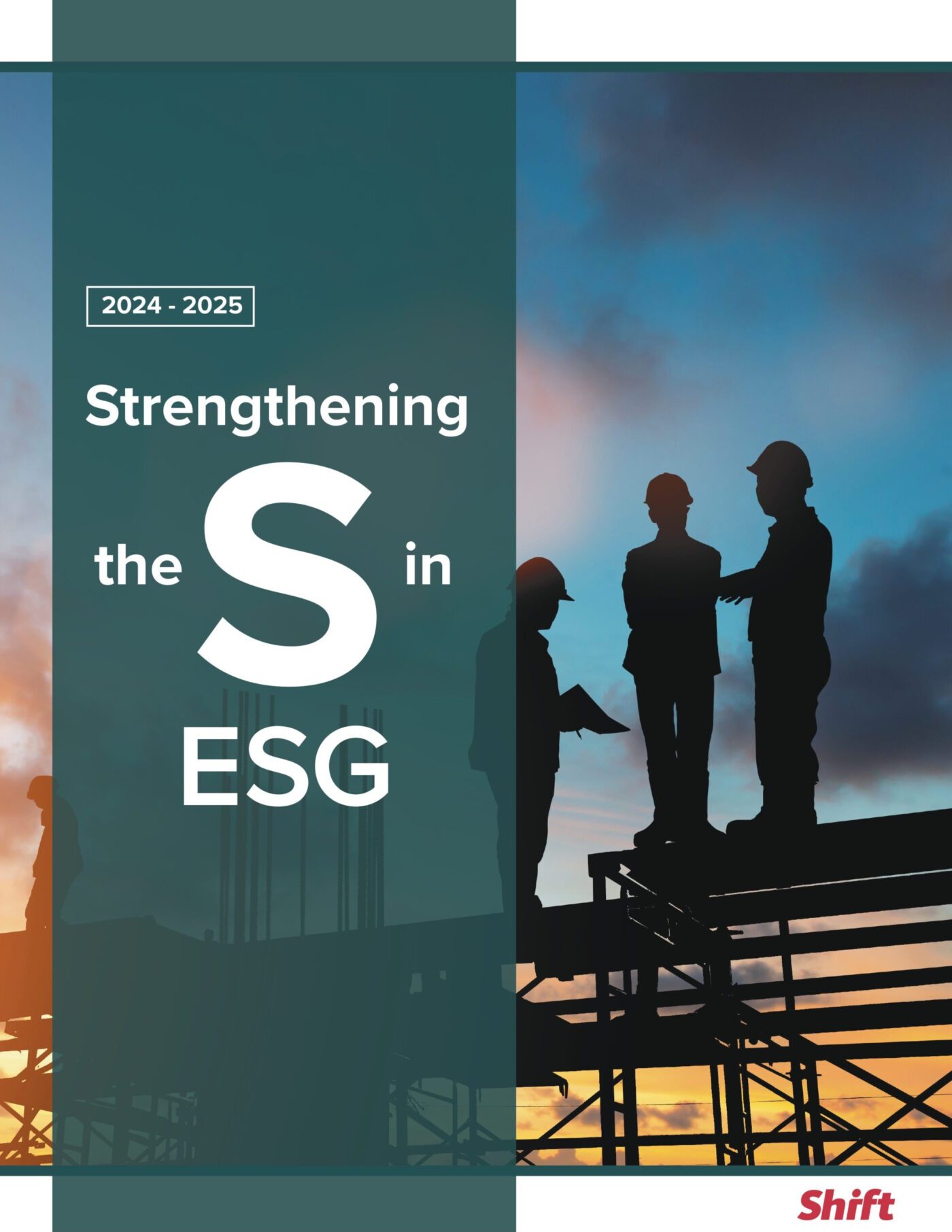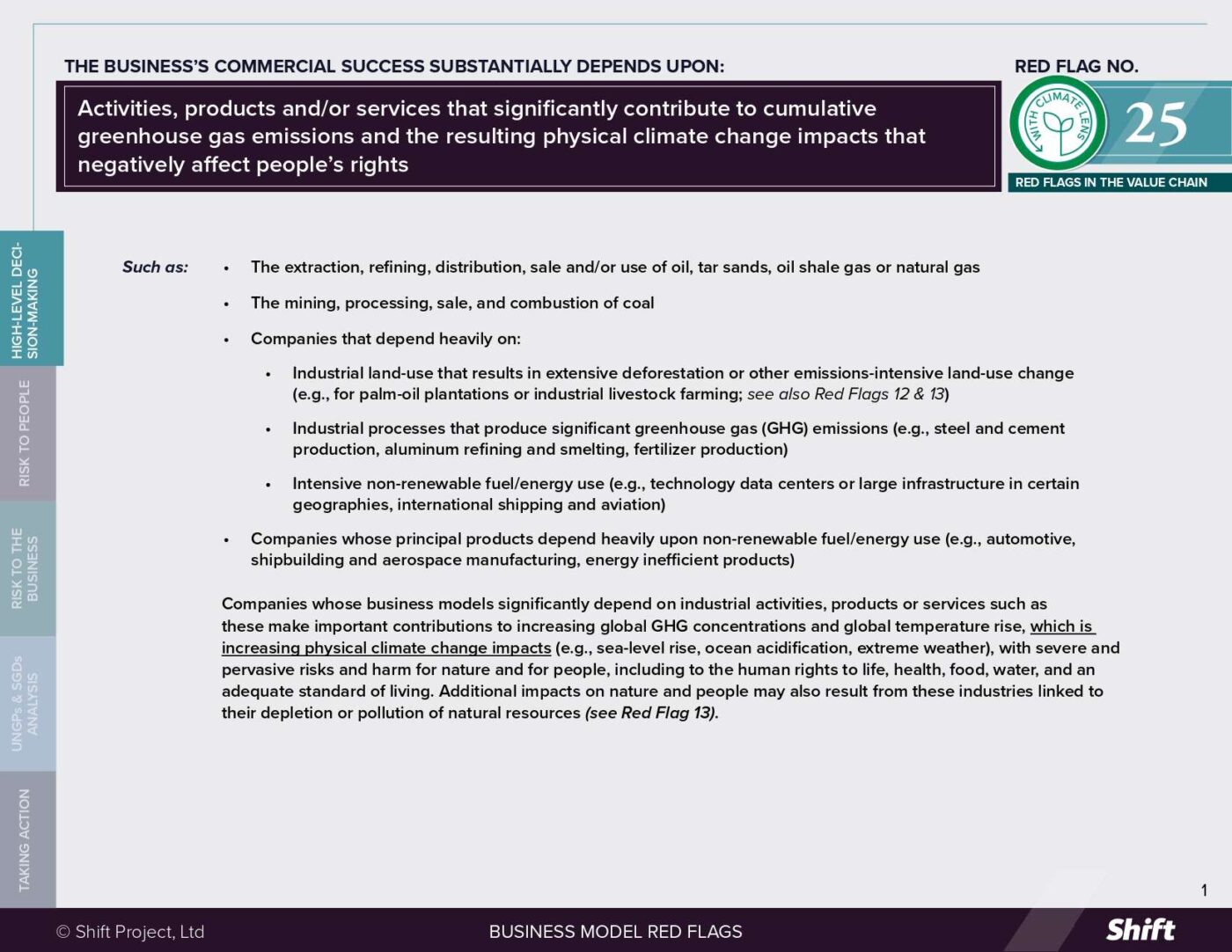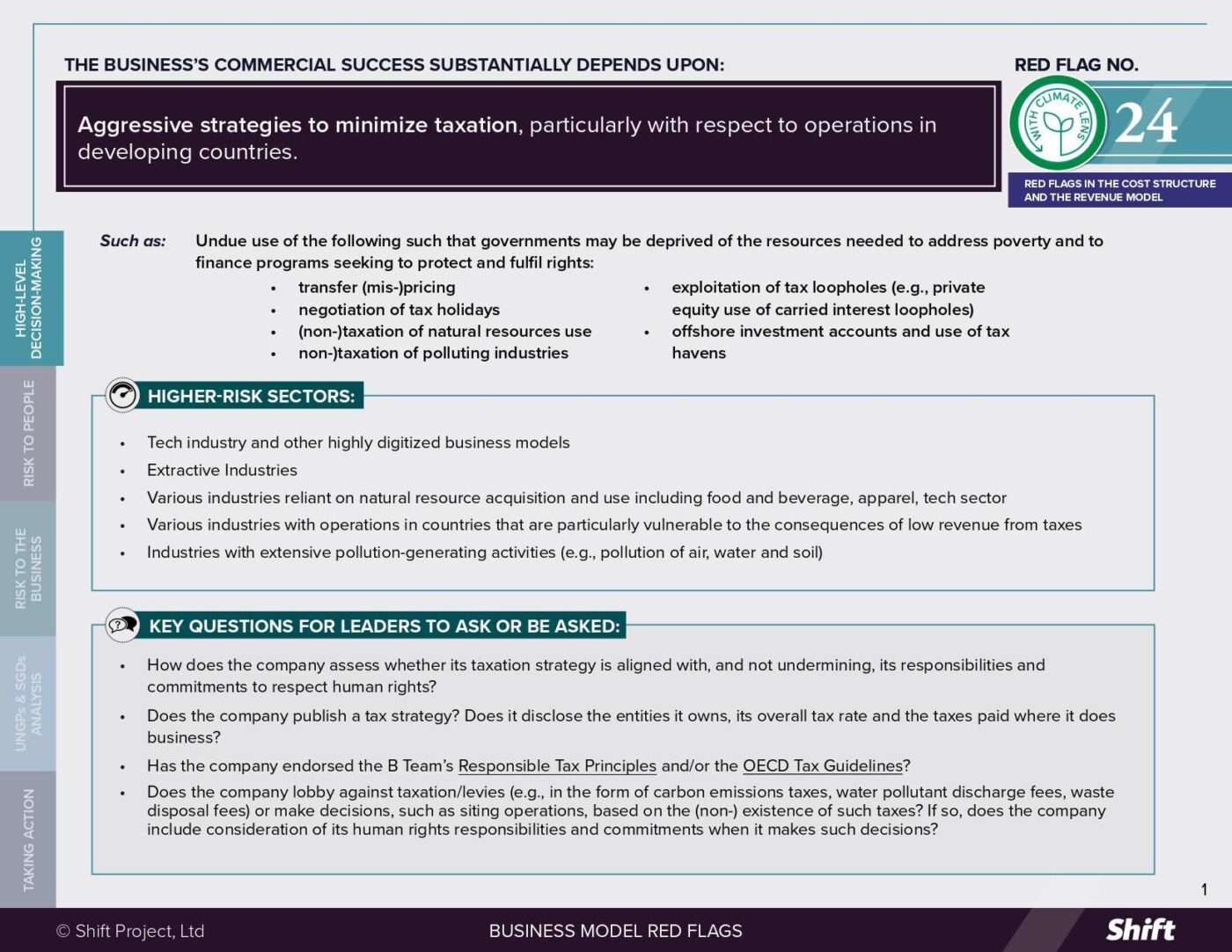Good human rights reporting matters. It shapes practices, builds relationships and enables market rewards.
___
COMPANIES CAN USE THE REPORTING PROCESS TO ENHANCE INTERNAL CONVERSATIONS AND EXTERNAL RELATIONSHIPS IN SUPPORT OF STRONGER HUMAN RIGHTS PERFORMANCE.
Businesses are under growing pressure to be transparent about their “non-financial” performance. Regulators, investors, civil society organizations and consumers are demanding more and better information from companies about the impact their business has on the planet and on people. Some do it through the lens of environmental, social and governance (ESG) performance; others under the heading of sustainability, human and social capital management or social impact. Regardless, it is increasingly evident that businesses need to improve the way they account for their impacts on people; that human rights must be at the core of what they say; and that, done right, the reporting process can go beyond “ticking the box” to become a catalyst for positive transformation.
__
INVESTORS AND OTHER STAKEHOLDERS CAN GLEAN VALUABLE INSIGHTS FROM WHAT COMPANIES DO AND DON’T REPORT AND USE THE FINDINGS TO INFLUENCE BEHAVIOR
More and more companies are reporting on human rights; there are ever more regulations requiring that they do so – yet these are also quite varied; each company has its own reporting style, timeline and language; and reporting frameworks suggest different data should be disclosed. Given this confusing landscape, it is easy for those looking at companies from the outside to get lost as to what information is meaningful and relevant. Yet, distilling company reporting is critical for anyone who wishes to use it as a window into whether companies are creating and protecting long-term value. Investors, regulators and civil society need tools to dissect and interpret disclosure in order to reach informed judgments.
“Good human rights reporting can spark meaningful conversations. Through the reporting process, businesses are prompted to discuss and challenge their own assumptions, approaches, and to identify areas for improvement. In parallel, these conversations offer stakeholders valuable insights into a company’s human rights risks, its efforts to address them and the challenges that persist.”
CAROLINE REES, PRESIDENT OF SHIFT
Our Approach
At Shift, we understand the challenges that companies and their stakeholders face when writing, reading and making sense of human rights disclosure. Over the last seven years, we’ve worked with leading businesses across multiple sectors to help them improve the quality of their human rights disclosure and leverage this into improved human rights performance; we’ve helped investors to dissect and make sense of what companies report about their management of human rights risks; and we’ve collaborated with standard setters to shape regulations and frameworks that can lead to more meaningful disclosure.
We have drawn on our experience, research and analysis to develop tools for public use in order to raise the bar for the quality of corporate human rights disclosure. Below, you can find the resources that we’ve published.
Reporting Tools
Our publicly available tools to make human rights reporting, and its analysis, meaningful
We’ve invested substantially over the past decade, working with key partners and through multi-stakeholder collaborative processes, to design and deploy cutting-edge tools for companies, investors, governments and other stakeholders in order to improve the quality of human rights reporting and the maturity of its analysis. And, because we are a mission-driven organization, we’ve made sure that they are publicly available and free. Our flagship reporting tools include:

UNGP Reporting Framework
UNGP Reporting Framework
A tool to help companies align their human rights reporting with the UNGPs

Database of Company Reporting
Database of Company Reporting
Gathers and analyzes the human rights disclosure of hundreds of the world’s largest companies

UNGP Assurance Guidance
UNGP Assurance Guidance
A tool to help auditors and assurance specialists understand how to assure human rights performance
The Reporting Framework and UNGP Assurance Guidance were developed in collaboration with Mazars Group. Visit the Reporting Framework project website for more information.
Research and Analysis
We use our research and analysis to produce publicly available resources for practitioners and those interested in analyzing company disclosure.
Shift has produced a growing collection of publicly available resources that derive from our insights and analysis of companies’ human rights reporting. These resources:
- Analyze the impact of legislation on the quality of company disclosure (for example, our recent analysis of the French Duty of Vigilance Law),
- Provide sectoral analysis of company reporting (for example, this report on the Canadian Mining Sector) and
- Help investors and other stakeholders read and interpret corporate human rights disclosure (for example, our Dissecting Disclosure collection).
To access our complete list of resources, visit our library and filter by thematic expertise.
Dedicated Expert Support
In addition to our publicly available tools and resources, we offer companies, investors and governments bespoke advisory support.
______
Companies
We offer companies support to evaluate the quality of their human rights disclosure, benchmark it against industry peers, identify gaps or weaknesses in information and the underlying performance and build internal capacity for improvement in line with the UN Guiding Principles.
Investors
We provide investors with disclosure analysis and help them use reporting as a window into a companies’ human rights performance and as a resource to inform their decision-making and engagement with businesses.
Governments and Standard Setters
Shift works with governments and other regulators to improve human rights reporting requirements as part of the “Smart Mix” of measures needed to fulfill states’ duty to protect human rights. We help other standard-setters ensure their non-financial reporting frameworks appropriately incorporate respect for human rights. Visit our dedicated page on Standards to learn more.




